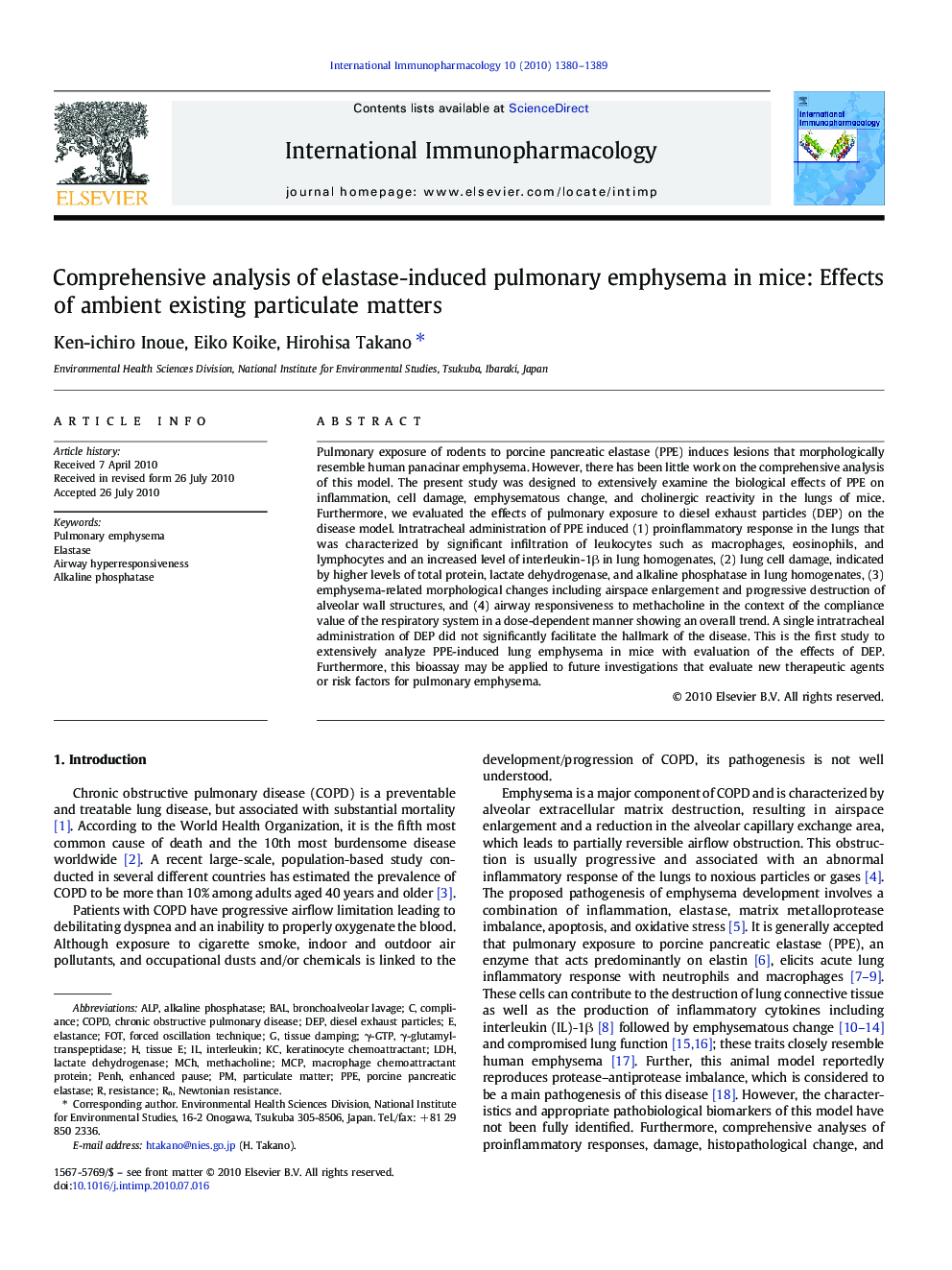| Article ID | Journal | Published Year | Pages | File Type |
|---|---|---|---|---|
| 2541151 | International Immunopharmacology | 2010 | 10 Pages |
Pulmonary exposure of rodents to porcine pancreatic elastase (PPE) induces lesions that morphologically resemble human panacinar emphysema. However, there has been little work on the comprehensive analysis of this model. The present study was designed to extensively examine the biological effects of PPE on inflammation, cell damage, emphysematous change, and cholinergic reactivity in the lungs of mice. Furthermore, we evaluated the effects of pulmonary exposure to diesel exhaust particles (DEP) on the disease model. Intratracheal administration of PPE induced (1) proinflammatory response in the lungs that was characterized by significant infiltration of leukocytes such as macrophages, eosinophils, and lymphocytes and an increased level of interleukin-1β in lung homogenates, (2) lung cell damage, indicated by higher levels of total protein, lactate dehydrogenase, and alkaline phosphatase in lung homogenates, (3) emphysema-related morphological changes including airspace enlargement and progressive destruction of alveolar wall structures, and (4) airway responsiveness to methacholine in the context of the compliance value of the respiratory system in a dose-dependent manner showing an overall trend. A single intratracheal administration of DEP did not significantly facilitate the hallmark of the disease. This is the first study to extensively analyze PPE-induced lung emphysema in mice with evaluation of the effects of DEP. Furthermore, this bioassay may be applied to future investigations that evaluate new therapeutic agents or risk factors for pulmonary emphysema.
Research Highlights► Pulmonary exposure to porcine pancreatic elastase (PPE) induced emphysematous lung injury with lung expression of proinflammatory molecules in mice. ► A moderate dose of diesel exhaust particles did not facilitate PPE-induced lung emphysema. ► Lactate dehydrogenase and alkaline phosphatise in lung homogenates may be an alternative biomarker for disease progression/exacerbation of pulmonary emphysema.
